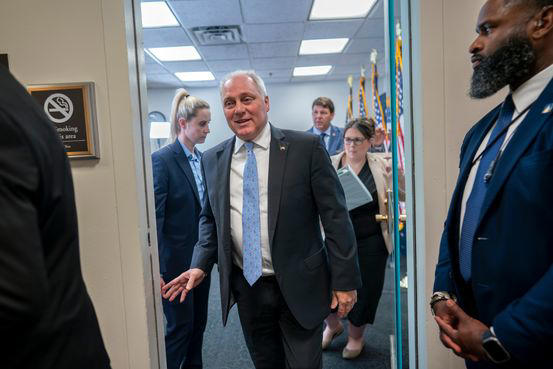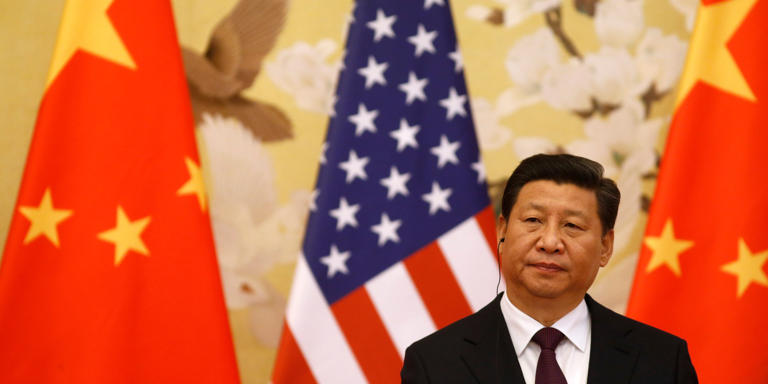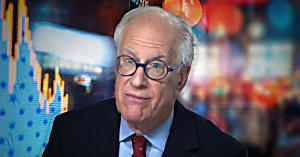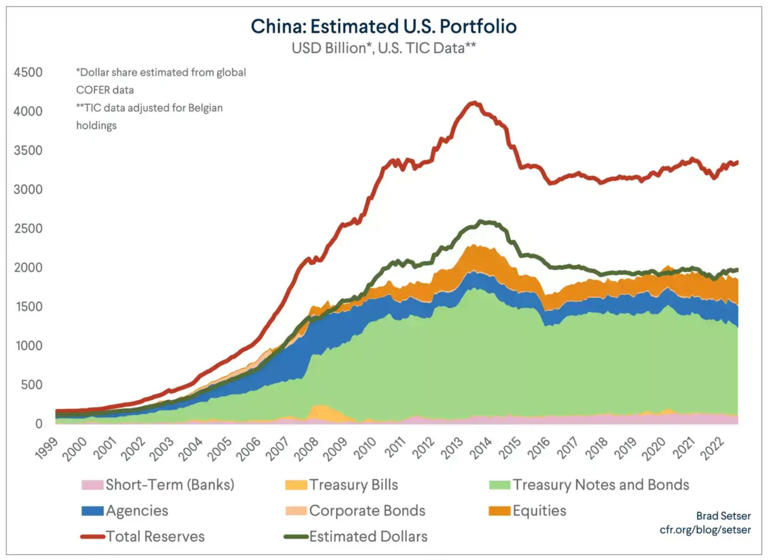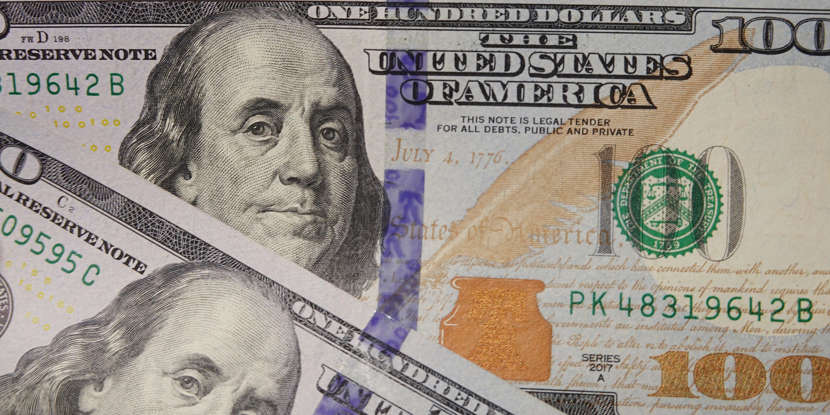UNA NOTICIA DEL WALL STREET JOURNAL, PARA EL BLOG EDUCATIVO DE NOTICIAS
DE ENILDO E RODRIGUEZ NUNEZ MBA , PhDP COORDINACION INTERNACIONAL DE COMUNICACIONES EN REDES E INFORMATICA.
Una publicacion de fuentes externas.
Could Steve Scalise Quell the House GOP Revolt to Become Speaker?
WASHINGTON—As the No. 2 Republican in the House, Steve Scalise is in pole position to be the new speaker. But his seniority and the prospect of an orderly transition might be liabilities in the eyes of the forces that doomed former speaker Kevin McCarthy.
Republicans’ narrow House majority has given extraordinary leverage to a small band of antiestablishment conservatives who now want more influence in the inner sanctum. Some view Scalise, who has spent nearly a decade working his way up House leadership, as too much a product of the traditional system to lead a conference with various factions that want to throw out the old playbook.
That restive minority also will have an alternative. Ohio Rep. Jim Jordan, a committee chairman more aligned with the rebels, also has entered the contest, which is expected to begin in earnest when the House reconvenes early next week. Former President Donald Trump has endorsed Jordan.
“People are expecting Washington to do something different,” said Rep. Thomas Massie (R., Ky.), who is backing Jordan. “If we went through all of this just to move everybody up one spot, I think it sends the wrong message.”
Scalise’s shot at the speakership comes at a difficult time for him personally. Just weeks ago, the Louisiana Republican announced he had been diagnosed with multiple myeloma, a blood cancer with a treatment regimen that can leave patients fatigued and at risk for infections.
Also standing in his way is McCarthy, a longtime Scalise rival. A lot of McCarthy’s allies are throwing their support behind Jordan, and in some one-on-one meetings, the former House speaker has left some Republicans with questions about whether Scalise is physically up to the demands of the job, according to one person familiar with the matter. The post involves obligations to raise money for the party, including fundraisers many nights and weekends.
A McCarthy spokesman said that McCarthy didn’t link Scalise’s capabilities to his health.
Scalise, 58 years old, says none of that prevents him from being the right person for the grueling job and that his doctors have cleared him to take on the work. He is pitching himself as a unifier who can quell the open warfare—including near fistfights—that broke out this past week after seven Republicans backed Florida GOP Rep. Matt Gaetz’s motion to vacate the speakership, ending McCarthy’s tenure.
Scalise, who is the House majority leader, has yearslong relationships, sway with powerful groups of House conservatives and a history of overcoming adversity. He is reminding his colleagues how they rallied together after he was shot in 2017 during a congressional baseball practice, a harrowing incident that has made it hard for him to walk.
“I know the coming weeks ahead will be some of the most arduous times we will face together, but this Conference is worth fighting for,” Scalise wrote in a letter Wednesday to colleagues announcing his candidacy for the speakership. “We cannot lose sight of our shared mission.”
The contest for the speakership will get in full swing next week during a candidate forum planned for Tuesday, where Scalise is expected to address questions about his health.
In the House, where the GOP commands a narrow 221-212 majority, Scalise will need the support of almost every Republican member to be elected, assuming that Democrats vote for their leader, Rep. Hakeem Jeffries (D., N.Y.) If all members show up and vote for a person, Scalise could lose no more than four Republican votes and still become speaker.
The job would make him second in line to the presidency. He would also be the lead negotiator with the Democratic-controlled White House and Senate, and one of eight congressional leaders who are briefed on sensitive national-intelligence issues.
A former computer programmer, Scalise was elected to the House in May 2008 to fill a vacancy opened up by the resignation of Bobby Jindal. Scalise has been waiting in the wings for years. In 2018, he held the No. 3 spot as whip when then-House Speaker Paul Ryan announced his retirement and McCarthy struggled to lock up conservative support. He was also at the ready earlier this year, when it took McCarthy 15 rounds of voting to win the speakership.
His chief rival to take over as speaker is Jordan, the House Judiciary Committee chairman and former wrestling coach who has argued that Republicans need to wage political fights with a go-to-the-mat mentality instead of reaching for compromise.
Both men are former leaders of the Republican Study Committee, which represents the widest swath of conservatives in the House. Jordan vacated that post—clearing the way for Scalise to take it—and then helped found the House Freedom Caucus because he thought conservatives needed to fight harder for their causes.
Scalise instead stayed on a traditional upward path inside the chamber. He vaulted first from the RSC chairmanship to become House Republican whip in 2014, then became the majority leader this year after Republicans took control of the chamber.
“Steve, who has been in leadership a long time, clearly is part of the establishment,” said Rep. Darrell Issa (R., Calif.), who is backing Jordan. “Every once in a while, they need someone from outside,” he said, citing the importance of bringing back into the fold the same dissidents who just defenestrated McCarthy.
Scalise supporters point to a Nov. 17 deadline to avoid a government shutdown, not to mention fast-arriving primary and general elections, as reasons an outsider isn’t right for the job.
“We don’t need somebody who’s going to need training wheels to function,” said Rep. Jake Ellzey (R., Texas). “We need somebody that we know and trust to take over the reins day one.” He noted that McCarthy’s abrupt removal has forced the cancellation of fundraising events including one scheduled this month in Dallas. “In order to keep this very thin majority and broaden it, you have to have the fundraising operation right now. And Steve is already on that,” he said.
While both Scalise and Jordan are seen as true conservatives—unlike McCarthy, whose ideology was more fluid—Scalise’s record is one of trying for incremental gains instead of settling for nothing if he can’t have everything.
After joining Republican leadership, Scalise voted regularly to raise the debt ceiling, casting a “no” vote only in 2021 after several rounds of spending to combat the Covid-19 pandemic boosted U.S. debt. In contrast, Jordan had only once voted to raise the debt ceiling, supporting a temporary three-month suspension in 2013, until voting “yes” when Congress this year put into law a debt-ceiling deal struck between McCarthy and President Biden.
The two rivals also have split on Ukraine funding, with Jordan voting against providing $300 million for a fund that has paid for military equipment, and Scalise voting in favor. Both men have defended Trump, voting not to accept the 2020 election results from Arizona and Pennsylvania and criticizing Democrats for impeaching him. But Jordan has been more vocal, using regular television appearances to proclaim that the government is weaponized against conservatives. He also has turned the tables on Democrats by probing business dealings of Hunter Biden, the president’s son.
Some Republicans are already tapping the brakes on the notion that Scalise’s rise is inevitable. “It’s a mistake right now for the conference to just give everybody one rung of promotion,” said Rep. Garret Graves (R., La.), a right-hand man to McCarthy. “We need to do a deeper dive and look at the accountability of the leadership team.”
Scalise was shut out of any prominent legislative roles during McCarthy’s speakership. McCarthy instead circumvented Scalise by tapping Graves and Rep. Patrick McHenry (R., N.C.)—once the chief deputy whip to Scalise—to negotiate a debt-ceiling deal with the White House. McCarthy later relied on Graves as a go-between during successful efforts to avoid a government shutdown on Oct. 1.
But Scalise has developed relationships across different factions of the party, regularly attending the weekly closed-door meetings of the RSC, which is a major power center of the House. He has formed friendships playing on the GOP congressional baseball team, where his close friends include Rep. Brad Wenstrup (R., Ohio), who applied a tourniquet to stanch the bleeding after Scalise was shot.
Scalise is known for personal touches, including sending king cakes to House lawmakers on Mardi Gras, according to people who work on Capitol Hill. When he served as whip, Scalise turned a room off Statuary Hall into a chamber to host Republicans, where members could be seen streaming in and out around votes, talking and having refreshments.
“He is so good at hospitality,” said former Scalise communications director Moira Bagley Smith. “There’s a Cajun word called lagniappe. It comes up a lot in Scalise’s office. That is a word that they use in Louisiana for…a little extra something you are doing for someone to make their day better.”
Scalise has drawn criticism from some Democrats and civil-rights groups. In 2014, reports surfaced that he had appeared in 2002 before the European-American Unity and Rights Organization, a white-supremacy group founded by David Duke, a former Ku Klux Klan leader. Scalise apologized for his appearance.
Cancer specialists not involved in Scalise’s treatment say people with multiple myeloma usually can work and lead normal lives while undergoing standard treatment—a combination of pills and injections that are given on an outpatient basis. The medicines can cause fatigue and increase the risk of infections. Doctors say the side effects are manageable, and patients don’t usually experience the hair loss and severe nausea often associated with chemotherapy.
“Patients are living long, productive lives,” said Dr. S. Vincent Rajkumar, a multiple myeloma specialist at the Mayo Clinic in Rochester, Minn.
Advances in treatments have improved the overall survival rate for myeloma over the past two decades, rendering it a chronic illness for many. The five-year relative survival rate—a measure of surviving cancer in the absence of other causes of death—has surpassed 60%, compared with about 35% in 2000, according to a National Cancer Institute database.
Scalise’s doctors expect his chemotherapy treatment will be shortened to just two more months, down from five more months, given how well he is responding, a Scalise spokeswoman said.
Write to Siobhan Hughes at Siobhan.hughes@wsj.com
